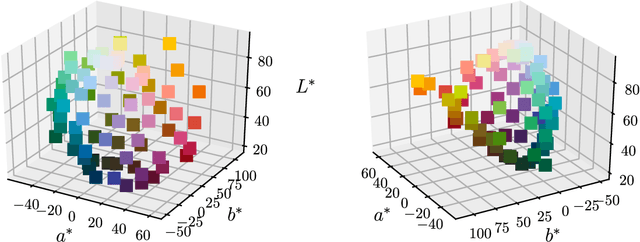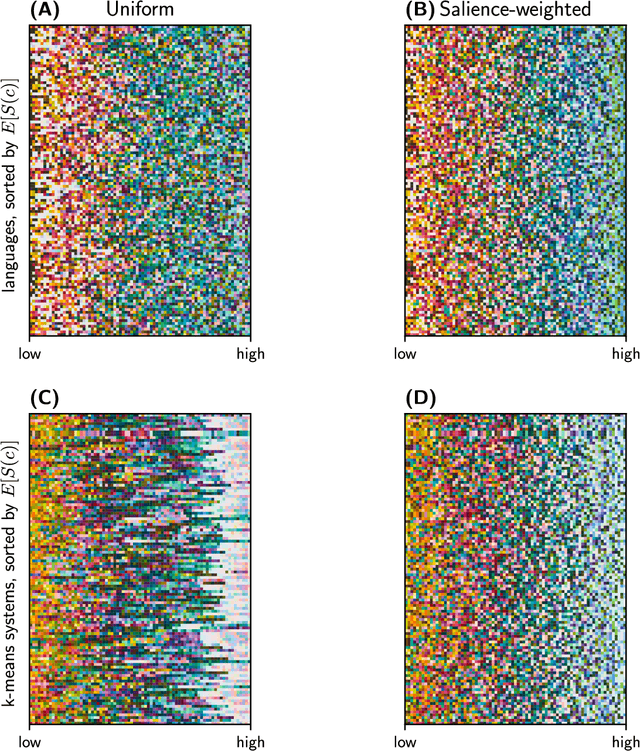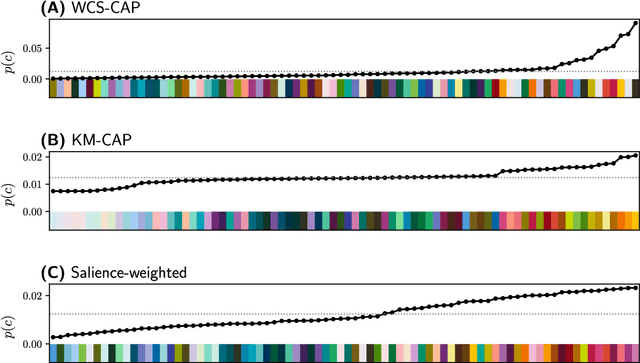Color naming reflects both perceptual structure and communicative need
Paper and Code
Aug 03, 2018



Gibson et al. (2017) argued that color naming is shaped by patterns of communicative need. In support of this claim, they showed that color naming systems across languages support more precise communication about warm colors than cool colors, and that the objects we talk about tend to be warm-colored rather than cool-colored. Here, we present new analyses that alter this picture. We show that greater communicative precision for warm than for cool colors, and greater communicative need, may both be explained by perceptual structure. However, using an information-theoretic analysis, we also show that color naming across languages bears signs of communicative need beyond what would be predicted by perceptual structure alone. We conclude that color naming is shaped both by perceptual structure, as has traditionally been argued, and by patterns of communicative need, as argued by Gibson et al. - although for reasons other than those they advanced.
 Add to Chrome
Add to Chrome Add to Firefox
Add to Firefox Add to Edge
Add to Edge